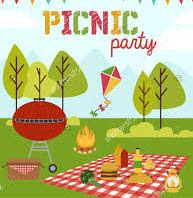Lesson Plan of Anecdote English Grade IV
Lesson Plan of Anecdote
English Grade IV
Students’ learning Outcomes
·
Write a short passage,
anecdote, fable etc. for pleasure and creativity.
Information for Teachers
·
An anecdote: is a short entertaining or exciting story
about a real occurrence or person.
("She
uttered anecdotes about her occupation")
Ø An account observed as untrustworthy or gossip.
("His
wife's death has long been the subject of gossip and anecdote")
Ø The description of a slight narrative occurrence
in a picture.
("The usage
of inversions of hierarchy, anecdote, and inconsistency by Salem, Ali, and others")
·
An anecdote: is a short and interesting story engaged from a
person’s past knowledge or that of someone they know or have heard about.
·
An anecdote: is well-defined as a small and
thought-provoking story or an amusing occurrence habitually wished-for to
support or exhibit some point and make readers and listeners laugh.
·
An anecdote: is ‘true’ story and can be very convincing for
the reader. So the writer must use good imagination, creativity, and ideas to
share from his experience.
·
Creativity: is an important factor for writing any passage,
anecdote or a fable, etc.
·
As nouns the variance between
anecdote and fable is that anecdote is a short description of a real occurrence
or person, over and over again amusing or stimulating while fable is a fabricated
narrative envisioned to enforce some beneficial truth or dictum, usually with
animals, birds etc. as characters; an apologue prototypically,.
Material / Resources
Chalk/marker, board, chart paper
Worm up activity
·
Narrate this short anecdote
in class as if you are saying this about yourself.
·
Children must feel that it
was you who went to the park. Practice it before coming to the class so you can
narrate it without looking at the text.
Ø The weather in November was (use to be very)
beautiful. So, my family and I decided to go to a park to enjoy the beautiful
weather. When we entered the park, we were amazed to see so many people
enjoying in it. The flowers were blooming, the birds were chirping and kids
were running here and there with joy. We all decided to sit on the grass. We
had snacks, which we brought from home. We played cricket as well. We spent 3
hours in the park and we enjoyed a lot. It’s good to enjoy time with family and
friends.
·
When you have done this ask
the students “Have you ever faced s situation like this or had some trouble?”
·
A few students would like to
share their experience. Encourage them to talk.
·
Tell them we are going to
discuss our experience today in the form of a story called anecdote.
(Help for pronunciation: An –
ek – dot, c is pronounced as ’k’ and ‘e’ is silent, thus reading dote as ‘dot’.
Development
Activity 1
·
Paste the questions chart on
the board.
·
Generate a class discussion
on the following questions:
1.
Have you ever gone with your
family on a trip to some place or a picnic?
2.
What was the name of the
place?
3.
Did you often go to the same
place with your family?
4.
What did you do to pass the
time on the journey?
5.
What exciting funny, scary or
strange thing happened on your way or when you got there?
(This is a main anecdote)
·
How did you spend your time
there?
·
What did you enjoy the most
there?
·
What did you dislike about
the whole trip?
Activity 2
·
Divide the class into pairs
and ask the pairs to discuss and then write their anecdote in one or two
paragraphs.
·
Ask the pairs to exchange
their notebooks to read each other’s anecdote.
Activity 3
·
Now ask them to individually
write their own anecdote.
·
Instruct them to write a
short paragraph. Remind them to use past tense for it.
·
It can be any memorable event
i.e. birthday party, a picnic, a wedding ceremony etc.
·
Monitor and help the students
with ideas and vocabulary while they are writing their anecdote.
Sum up / Conclusion
·
Ask students, “What is an
anecdote?”
·
One or two students can read
their anecdotes in class.
·
Invite comments on the
anecdotes and appreciate the students who shared their anecdotes.
Assessment
·
Assess students’ oral responses in a worm up or
activity 1 and then their written work.
·
Ask students how anecdotes are different from
fables?
Follow up
·
Ask students to write an anecdote on the
following topic:
·
“The day when our result was declared”






Comments
Post a Comment